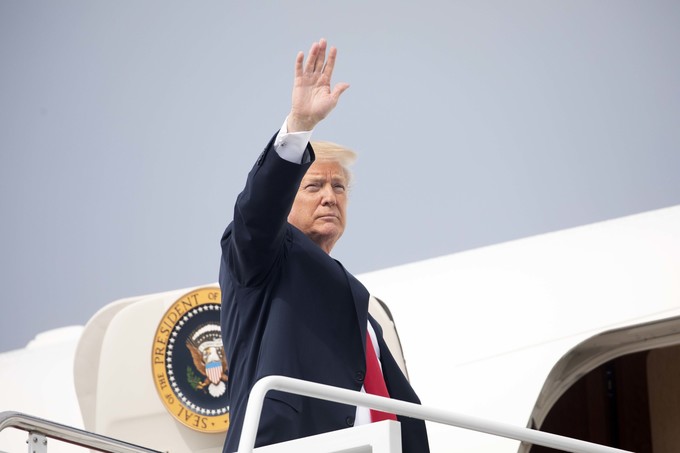The U.S. has pulled out of the 2015 Iran nuclear deal and will unilaterally re-impose economic sanctions on the Islamist regime.
Opposition to the Iranian Islamist regime led the U.S. in 1979 to impose sanctions. These were strengthened continuously and beginning in 2006, the UN approved what had become a harsh economic embargo on Iran.
Iran was devastated economically by the embargo: its currency was devalued by some 80 per cent.
The removal of economic sanctions following the 2015 deal led European companies in particular to return to Iran.
As part of the renewed economic sanctions, U.S. President Trump announced that any company doing business with Iran would be banned from doing business with the U.S.
Unimpressed, the French finance minister reacted by affirming: “The Americans are not the police force for the world economy.”
The Europeans are discussing setting up a bank to do trade and investment financing for Iran in euros rather than U.S. dollars in order to thwart American attempts to control who trades with Iran by imposing restrictions on U.S. dollar lending.
By abandoning the multilateral accord, the Americans have parted company with China, Russia, the European Union, Germany, France, and the U.K., who along with the U.S. signed the 2015 Iran deal and want it to survive.
The U.S. decision violates UN Resolution 2231 (2015) approved by the Security Council which embodied the 2015 agreement in international law.
Though the Islamic Republic of Iran continued to conform to the terms of the 2015 agreement, as confirmed by regular inspections, the U.S. saw fit to renounce it.
When the Iranian clerics took power in 1979, the cordial relations between Israel and Iran ended. For the Iranian theocrats the U.S. was the grand Satan and Israel the little Satan.
“Death to America and death to Israel” were curses uttered by the Iranian clerics. Though interpreted by the Supreme Leader Khamenei as death to “policies and arrogance” the curses were thrown out to inflame Iranian public opinion.
Obvious concern over Israeli security was a main factor that prompted the U.S. and its main European allies to undertake a multi-year negotiation that culminated in the Iran nuclear deal signed in 2105.
Iran, though a signatory in 1970 to the Nuclear Non-Proliferation Treaty, and subject to inspection visits from the International Atomic Energy Agency, had subsequently pursued a nuclear enrichment strategy that would have allowed it to develop nuclear weapons.
Under the terms of the landmark 2015 nuclear agreement, the Islamic Republic of Iran renounced the development of nuclear weapons.
However, Iran was unwilling to renounce the development of missile-building capacity or the sale of arms to Shia Islamist groups in conflict with Sunni groups in Yemen, Syria and Iraq (as part of the proxy war Iran wages with Saudi Arabia).
This led Israel and many U.S. Republicans to denounce the Iranian nuclear deal signed by former U.S. president Obama.
The Trump decision to dump an international deal for partisan political reasons is another in a series of U.S. moves that undermines confidence in the U.S. as a negotiating partner.
Recent examples of the U.S. acting in bad faith include not just Trump’s withdrawal from the Paris climate change agreement and the Trans Pacific Partnership, but also President Clinton breaking the pledge to Russia not to expand NATO further into eastern Europe and President George W. Bush killing the Anti-Ballistic Missile Treaty.
Currently, the U.S. is threatening to undo NATO, the World Trade Organization and NAFTA, in a crude attempt to force partner states to do U.S. bidding.
Entering into good faith bargaining with the world superpower is a proven bad risk.
Calling the U.S. Iranian decision “diplomatic sabotage,” the U.K. Labour Party Shadow Foreign Secretary Emily Thornberry declared, “we must get used to a world without American leadership.”
For Justin Trudeau, as the current G7 president, it means finding a way to broker an understanding between the major European economies and the U.S. so that differences over the application of sanctions on Iran do not lead to a serious falling out among leading Atlantic nations.
Canadian foreign policy has been so closely aligned to the U.S. for so long that acting independently of the Americans is going to take more courage and ingenuity than we have seen from a Canadian prime minister in decades.
Duncan Cameron is president emeritus of rabble.ca and writes a weekly column on politics and current affairs.





